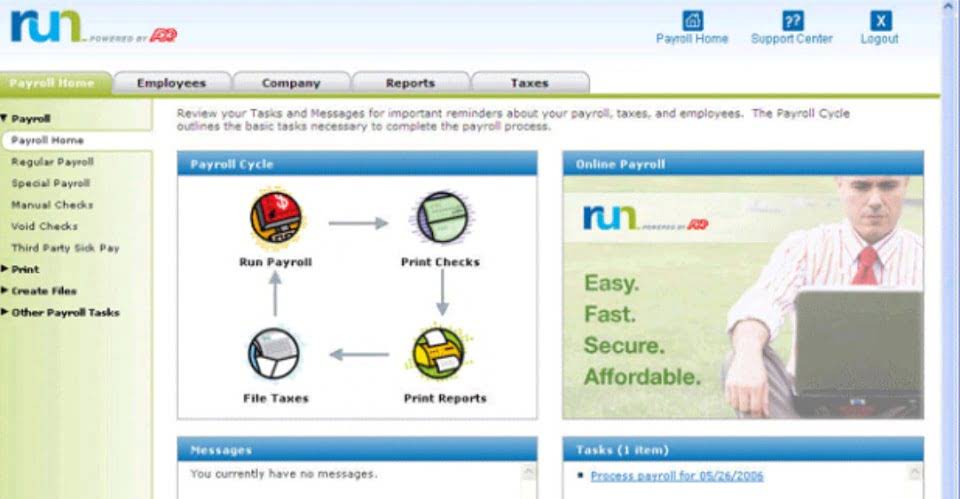Going concern considerations a guide for IFRS reporters

For example, if management said that the company is operating well, but auditors noted that the sales revenue is decreasing significantly. Assessing a company’s financial viability is inherently subjective, as it involves making judgments and estimates about future events, which may be uncertain or difficult to predict. When preparing forecasts and performing other procedures as part of the going concern assessment, management will need to consider a broad range of factors.
Difficult to Assess Financial Health
Usually, liquidation value is applied when investors feel a company no longer has value as a going concern, and they want to know how much they can get by selling off the company’s tangible assets and such of its intangible assets as can be sold, such as IP. In order to avoid the entity’s credit rating suffering any further decline, the directors have refused to make disclosures in the financial statements and have prepared the financial statements for the year ended 31 March 20X2 on the going concern basis. If there are any material uncertainties relating to the going concern assumption, then management must make adequate going concern disclosures in the financial statements. The concept of depreciation and amortization are based on the assumption that a business will continue to perform its operations in the near future (this period is the next 12 months after an accounting period). Factors affecting the going concern concept include financial performance, cash flow, market conditions, regulatory changes, and management’s ability to address future uncertainties. If management concludes that the business cannot continue as a going concern, financial statements must be prepared on a different basis, such as liquidation accounting.
Other Principles Derived from the Above Concepts
The Going Concern Concept is the assumption that an organization will continue to operate indefinitely and without needing to liquidate its assets and pay off creditors. To sum it all up, the going concern concept implies that the business will continue for the foreseeable future and thus give a more realistic image of the business from a long-term view. The going concern principle reassures stakeholders that the company is operating with the intent of continued business activities. These obligations are recognized on the balance sheet, assuming XYZ Manufacturing will fulfill them as part of its ongoing operations. The auditors of the company are required to analyze the going concern status of a business.
Business
- The auditor will consider the adequacy of the disclosures made in the financial statements by management.
- In both cases a paragraph explaining the basis for the qualified or adverse opinion will be included after the opinion paragraph and the opinion paragraph will be qualified ‘except for’ or express an adverse opinion.
- This assessment must be based on appropriate audit procedures, the nature and scope of which depend on the individual situation of the audited company.
- CFI is the official provider of the Financial Modeling and Valuation Analyst (FMVA)™ certification program, designed to transform anyone into a world-class financial analyst.
- Management is responsible for providing adequate evidence supporting the going concern assumption and addressing any identified risks or uncertainties.
- The going concern idea guarantees that accounting methods stay anchored in reasonable company expectations in a world of continuous market volatility.
The 7th accounting concept is the consistency concept, which holds that the same accounting principles should be consistently applied from one period to another. Lenders and investors are more widely attracted to businesses they believe are going to continue and generate returns for those investors. Together, this gives companies higher possibilities in raising capital and expanding their entity. The going-concern concept has serious implications concerning the accuracy, faithfulness, and reliability of financial statements. Such advantages would endow the entity to become rather open with respect to financial information and show the true position of the entity’s finances. Should such circumstances arise, auditors and management of the company have to determine if the going concern assumption still holds true.
The going concern assumption is a fundamental concept in accounting that assumes a company will continue operating for the foreseeable future. This article aims to provide an in-depth understanding of the going concern assumption, its importance in the accounting profession, Sales Forecasting and its implications for various stakeholders. With a focus on the Indian context, we will also explore example cases to illustrate the concept in real-world scenarios. Users will want to understand how management reached their conclusion (including the basis of any assumptions used in their assessment) and how the uncertainty would impact the entity’s resources, liquidity and solvency. The most severe but plausible downside scenario will need to be assessed when forecasting. This will not be a straightforward task, as it will require consideration of both sector specific and broader economic issues, as well as any actions or decisions taken by management.

Auditors going concern review the entity’s financial conditions, including liquidity issues, debt maturity, and other liabilities. They also consider non-financial factors such as legal proceedings, new legislation, or loss of a key market that could adversely affect the entity’s operations. If auditors have doubts about the entity’s ability to continue as a going concern, they are required to express these concerns in their audit report, which can include a qualification of their opinion or an emphasis of matter paragraph. If so, the auditor must draw attention to the uncertainty regarding the entity’s ability to continue as a going concern, in their auditor’s report.
- A case of such information is a company’s inability to continue operating without significant asset sales or debt restructurings.
- Factors to consider include when the financial statements are authorized for issuance and whether there is any known event occurring after the minimum period of 12 months from the reporting date relevant to the analysis.
- Accounting standards like IAS 1 under IFRS mandate such disclosures, offering stakeholders insights into potential risks that could impact future performance.
- The value received from the sale is usually the asset’s market value, less sale expenses.
- Auditors play a critical role in assessing a company’s going concern status, which directly impacts the credibility of financial statements.
- The accrual method in accounting means that “revenue or income is recognized when earned regardless of when received and expenses are recognized when incurred regardless of when paid”.
What is the importance of the going concern concept?
The going concern assumption influences decisions made by investors and creditors, shaping their assessment of a company’s long-term viability. For investors, a stable going concern status signals potential for growth and profitability, encouraging capital commitments. Conversely, doubts about viability may deter investment or prompt divestment due to perceived risks. Identifying indicators that question a company’s viability requires analyzing financial and operational factors. Persistent operating losses and negative cash flows are significant warning signs, suggesting a company may struggle to sustain operations without external support.

- Management’s assessment of going concern is in the spotlight because of COVID-19 and uncertainties involved.
- In the same way, the going concern concept may hinder the accurate assessment of real financial health, particularly during times when the company is under serious challenges.
- The accounting concept of going concern is based on the assumption that an entity will continue to operate into the foreseeable future.
- This may be done, for example, by reference to the entity’s cash flows, liquidity position and borrowing facilities.
Credit ratings from agencies like Moody’s or Standard & Poor’s can provide insights into a company’s financial stability. Explore the concept of going concern in accounting and its implications for financial Online Accounting statements, investors, and auditors. Business operations are subject to various uncertainties, such as market fluctuations, economic downturns, and regulatory changes, which may affect a company’s ability to continue as a going concern.
- Generally accepted accounting principles (GAAP) deal with the issue of going concern and its assessment.
- Failing the going concern assumption can have severe consequences for a company, including increased scrutiny from regulators, credit rating downgrades, difficulty in obtaining financing, and ultimately, the potential for bankruptcy or liquidation.
- Although the going concern assumption holds no place in the Generally Accepted Accounting Principles (GAAP), it is recognized by Generally Accepted Accounting Standards (GAAS).
- The principle promotes transparency by presenting financial information under the assumption of ongoing operations.
- Accounting standards determine what a company must disclose on its financial statements if there are doubts about its ability to continue as a going concern.

When management becomes aware of material uncertainties related to events or conditions that may cast significant doubt on the company’s ability to continue as a going concern, those uncertainties must be disclosed in the financial statements. The terms ‘material uncertainties’ and ‘significant doubt’ are important – this standard phrasing is expected to be used in the basis of preparation note to the financial statements. The principle allows financial statements to be prepared on the assumption that the company will continue its operations. This provides stakeholders with a reliable and accurate representation of the company’s financial position, performance, and cash flows.
Pos Terkait





